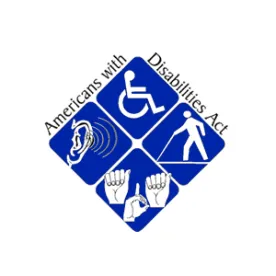On December 30, 2020, the U.S. Court of Appeals for the Seventh Circuit issued its opinion in McAllister v. Innovation Ventures, LLC, No. 20-1779 (7th Cir., Dec. 30 2020), and held that an employer did not violate the ADA where it terminated its employee after it became clear that she would require several additional months of leave after she had already been granted a two-and-a-half-month leave of absence due to her disability. The Seventh Circuit’s opinion in McAllister expanded on its previous opinion in Severson v. Heartland Woodcraft, Inc., 872 F.3d 476 (7th Cir. 2017), in which it held that a request for a two-to-three-month leave of absence following the expiration of the plaintiff’s FMLA leave entitlement was not a reasonable accommodation under the ADA. Jackson Lewis’s analysis of the Severson opinion can be found here.
In McAllister, the plaintiff, who had been employed by the defendant as an assembly worker, began a medical leave of absence after suffering significant injuries in a car accident in June 2016. In connection with her application for short-term disability benefits and FMLA leave, her doctor certified that she could not perform “any & all” job functions and that she was “totally disabled (unable to work).” After her anticipated return to work date was extended multiple times, the defendant terminated her employment in December 2016 after learning that she would not be able to return to work in any capacity until February 2017. While the plaintiff claimed that the defendant had failed to offer her a reasonable accommodation in violation of the ADA, the Seventh Circuit held, in affirming summary judgment for the employer, that because her doctor had made clear she could not return to work in any capacity, she could not establish that she was a “qualified individual” with a disability under the ADA. The Seventh Circuit noted that an employer “is entitled to rely” on the assessment of an employee’s physician regarding an employee’s ability to safely perform the essential functions of his or her job, notwithstanding contrary testimony provided by the employee.
The Seventh Circuit also rejected the plaintiff’s claim that the defendant should have offered her additional leave as a reasonable accommodation, citing its previous holding in Severson that a “multimonth leave of absence is beyond the scope of a reasonable accommodation under the ADA.” The Court stated that the four months of leave requested by the plaintiff, on top of the two-and-a-half months she had previously been granted, was “plainly not a reasonable accommodation,” as affording her such prolonged leave would have “effectively excuse[d] her inability to work, which the ADA does not require of employers.”
Although the McAllister decision reiterates the Seventh Circuit’s view that the ADA is not a leave statute, a notable win for employers, the Court reiterated that “[w]hether a requested accommodation is reasonable or not is a highly fact-specific inquiry.” Thus, employers should continue to evaluate leave requests on a case-by-case basis.




 />i
/>i

